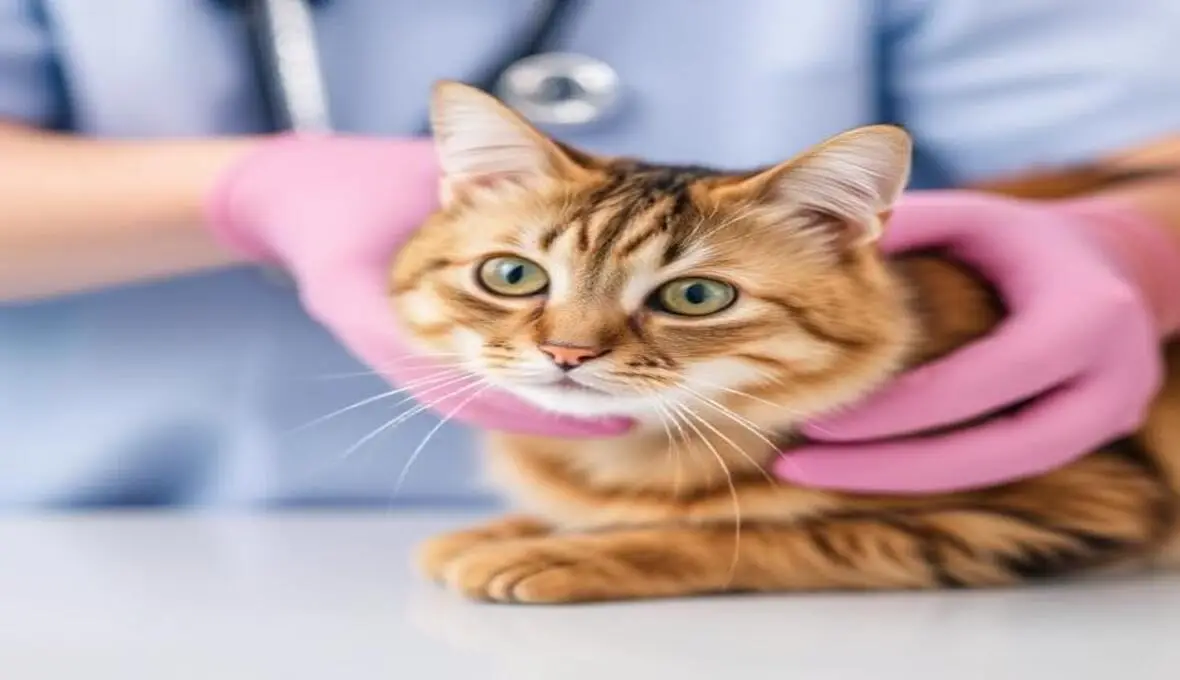How Often Should You Take Your Cat to the Vet?
Whether you’re a first time cat parent or a seasoned whisker wrangler,one burning question always pops up:“How often should I take my cat to the vet?”
Spoiler alert: it’s not just when your cat looks at you funny or refuses to use the litter box.
Taking your cat to the vet isn’t a suggestion it’s a crucial part of responsible pet parenting.And no,Garfield doesn’t get a pass just because he hates Mondays and carriers.
Let’s pounce straight into everything you need to know about how often you should take your cat to the veterinarian and why.

Why Regular Vet Visits Matter More Than Catnip
Cats are stealthy.They hide illness like it’s a secret government mission.By the time you see a problem,it’s usually already advanced. Regular vet appointments are the only way to stay on top of hidden feline health issues.
Preventative care saves lives And also your wallet.
Vets detect early symptoms Even the ones you can’t Google.
Updates on vaccinations and parasite prevention Because fleas are not friends.
Kitten Care: Tiny Paws,Big Vet Needs
Age: Birth to 12 months
Vet Visits:Every three to four weeks until the child is around sixteen weeks old
Ah, kittens.They’re small, fluffy,and have the energy of a toddler on espresso.But they also need multiple vet visits in their first few months.
What Happens at These Visits?
Core vaccinations (FVRCP, rabies, FeLV)
Deworming treatments
Flea and tick prevention
Wellness exams to track growth
Behavioral and dietary consultations (Yes, no more sharing pizza crusts.)
Fun Fact:A kitten’s first vet visit may include a fecal test.Yep,that’s poop science!
Adult Cats:One Year to Senior Sass
Age: 1 to 6 years
Vet Visits:At least once a year
Your adult cat might act chill,but don’t be fooled.Cats in this age range need annual checkups to stay healthy.They may look fine, but under the fur,issues can be brewing.
Typical Yearly Exam Includes:
Full physical examination (ears,eyes,teeth,paws you name it)
Vaccination boosters
Parasite check & prevention
Bloodwork if recommended
Dental evaluation (No, tuna breath is not normal)
Pro Tip:Schedule visits around the same time each year.Make it an annual event!You can even give it a fancy name like“Fluffy’s Health Gala.”
Senior Cats:The Golden Whiskers Club
Age: 7+ years
Vet Visits:Twice a year
Like people,cats age faster the older they get.Once your feline reaches senior status,it’s time to double the visits.
Why?
Because diseases like diabetes,kidney disease,hyperthyroidism, and arthritis become more common and early detection is your best friend.

Senior Cat Vet Visits May Include:
Complete blood panels
Urinalysis
Blood pressure check
Weight monitoring
Cognitive and mobility assessments
A cat that sleeps all day isn’t just lazy it could be aging faster than you think.
Signs Your Cat Needs to See the Vet ASAP
Even if you’re on schedule with wellness exams,emergency visits happen.Watch for:
Sudden changes in appetite or water intake
Weight loss or gain
Vomiting or diarrhea(especially more than once)
Coughing, sneezing,or breathing issues
Changes in litter box habits
Lethargy or hiding more than usual
Bad breath (that’s not tuna-related)
If your cat is suddenly acting like a stranger in your own home, don’t wait get to the vet.
Indoor Cats vs.Outdoor Cats:Who Needs the Vet More?
Spoiler alert: Both do.
While outdoor cats may have more exposure to parasites,injuries,and infectious diseases,indoor cats are not immune.Indoor cats can still get:
Fleas (yes,they can hitchhike in)
Obesity from lack of exercise
Stress-related illnesses
Dental disease
Being indoors doesn’t make your cat a superhero.Think of it as living in a bubble that still needs cleaning.
Vaccinations:More Than Just a Poke
Let us break it down.The majority of cats require core immunizations, however some may require non-core vaccines due to their lifestyle.
Core Vaccines (Must-Haves):
FVRCP (Feline viral rhinotracheitis,calicivirus,panleukopenia)
Rabies (required by law in many places)
Non-Core Vaccines:
FeLV (Feline leukemia virus) especially for outdoor cats or multi cat households
Bordetella if boarding often
Dental Care: Vet Visits for Pearly (or Plaque-Covered) Whites
Dental disease affects over 70% of cats by age 3.Imagine going three years without brushing your teeth.(Ew.)
Regular cleanings can prevent:
Gingivitis
Tooth loss
Painful infections
Organ damage from bacteria in the mouth
Annual dental checkups and professional cleanings every 1,2 years are ideal.If your cat’s breath smells like a garbage truck,book that appointment.
How Much Does a Vet Visit Cost?
Here’s a ballpark breakdown:
| Type of Visit | Estimated Cost |
|---|---|
| Kitten Wellness Visit | $100,$200 |
| Annual Adult Check-Up | $100,$150 |
| Senior Cat Exam (incl. bloodwork) | $150,$300+ |
| Emergency Visit | $200,$1000+ |
Advice: Wellness programs or pet insurance might reduce financial stress.
Mermaid Diagram:Cat Life Stages and Vet Visit Frequency
Make Vet Visits Less Stressful
Let’s be honest cats hate carriers like we hate Monday mornings.Here’s how to ease the drama:
Always keep the carrier out, not just on veterinary days.
Use pheromone sprays(like Feliway)
Reward with treats post visit (yes,bribes work)
Talk to your vet about calming options (prescribed meds or natural supplements)
Remember: less stress for your cat fewer battle wounds for you.
Summary:Vet Visit Schedule by Life Stage
| Life Stage | Frequency | Key Focus Areas |
|---|---|---|
| Kitten (0–1 yr) | Every 3,4 weeks | Vaccines, spay/neuter, early health screening |
| Adult (1–6 yrs) | Once a year | Vaccines, dental checks, general wellness |
| Senior (7+ yrs) | Every 6 months | Bloodwork, organ function, arthritis, weight changes |
Conclusion:
Don’t Wait, Vaccinate (and Medicate, if Needed)
We get it. Your cat’s royal highness would rather lounge in a sunbeam than be poked, prodded,or weighed.But vet visits are the ultimate act of love.
So the next time you think,“Does Whiskers really need a checkup?”
Ask yourself:Would you skip your doctor’s appointment if you had no way to say something hurt?
Exactly.
Make that vet appointment.Your cat may never thank you but their healthy purrs will speak volumes.









